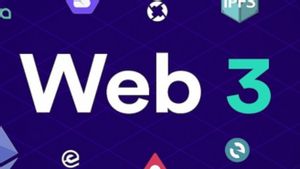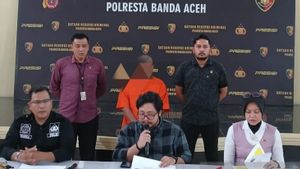JAKARTA - The United States Supreme Court on Tuesday, February 21, rejected an application by the operator of the popular internet encyclopedia, Wikipedia, to revive their lawsuit against the US National Security Agency (NSA) and challenge mass online surveillance.
By rejecting the Wikimedia Foundation's appeal, the judges upheld a lower court's decision to dismiss the lawsuit based on the government's claim to so-called state secrets privileges, a legal doctrine that can close a court if the disclosure of certain information would undermine US national security.
In a lawsuit represented by the American Civil Rights Union, the Wikimedia Foundation sued in 2015 challenging the legality of the NSA's "Upstream" surveillance of foreign targets through the "without suspicion" collection and search of data on Internet traffic on data transmission lines flowing in and out of the United States.
The NSA, which is part of the Department of Defense, is the agency responsible for US cryptography and communications intelligence and security. The US government has said that the targeting of NSA surveillance was authorized by a 2008 amendment to a federal law called the Foreign Intelligence Surveillance Act.
Our ability to host @Wikipedia hangs in the balance in a US Supreme Court case against YouTube.
Read the thread to learn more. 🧵⬇️ (1/6) pic.twitter.com/Hl4aLnCOZt
— Wikimedia Foundation (@Wikimedia) February 21, 2023
Upstream's existence was revealed in a 2013 leak by former NSA contractor Edward Snowden. The agent then fled to Russia and was granted Russian citizenship by President Vladimir Putin.
The lawsuit describes "surveillance networks" as an unlawful invasion of US citizens' privacy that violates the First Amendment to the US Constitution which protects free speech and the Fourth Amendment which prohibits unreasonable pursuit and confiscation.
SEE ALSO:
Wikimedia compared the interception of its communications by the NSA to "the capture and search of customer records of the world's largest library".
In 2021, the Fourth US Court of Appeals based in Richmond, Virginia, upheld the federal judge's rejection of the case by concluding that the NSA correctly invoked state secrets privileges. This meant the lawsuits could not proceed because revealing details about the surveillance could undermine US intelligence operations.
Meanwhile, ACLU lawyers have urged the judges to hear the case. "Although this mass surveillance of the private communications of US citizens raises serious constitutional questions, its lawfulness has not been considered by an ordinary court, civil or criminal, in its more than 20 years of operation," attorneys for the ACLU said, as quoted by Reuters.
The English, Chinese, Japanese, Arabic, and French versions are automatically generated by the AI. So there may still be inaccuracies in translating, please always see Indonesian as our main language. (system supported by DigitalSiber.id)


















